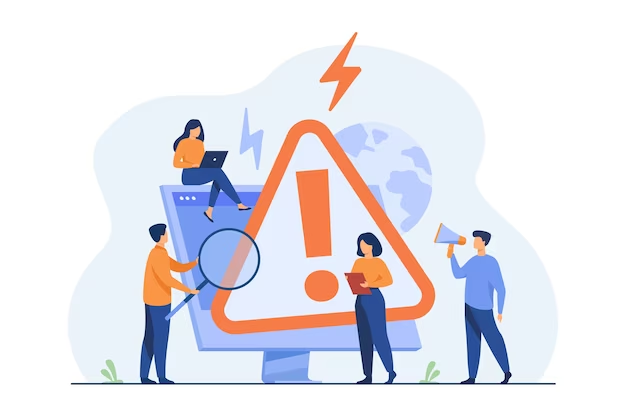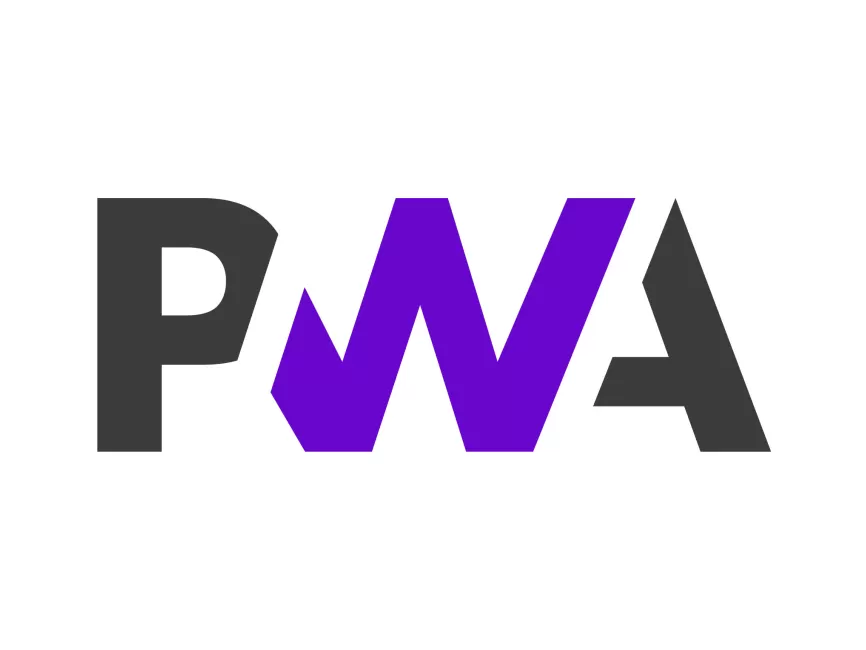Book a Free Consultation Today!
The Internet is filled with unreliable websites with every bit of nonsense or misinformation you’d want to avoid. While it is easy to see in most cases when a website is suspicious, at times, it can be hard to find if a website is unreliable.
In fact, some of the most popular websites that you may have visited, or perhaps visit every day, might be leading you away from the facts. We can’t say there’s a surefire way to completely avoid misinformation when you’re on the Internet.
What we can do is give you some examples of unreliable websites, so whenever you listen to anything they’re trying to tell you, take it with more than a pinch of salt.
We’ve divided our list into three sections, as these are the major kinds of websites you should be on the lookout for. Here are 10 examples of unreliable websites on the Internet.

Social Media
That said, many social websites have standards in place to govern the content that stays online. These standards are far from perfect, though, and we still spot unreliable information on these websites fairly often.
Many people post suspicious links on social media websites and sometimes this content goes unmonitored, leading people to websites that aren’t secure.
We’ve selected a couple of the websites that do the most damage when it comes to misinformation. We’ll let you get an idea of why social media websites are so unreliable from our picks below.
1. Facebook
It’s no wonder that Facebook should top this list. The era of misinformation and fake news started with Facebook, and even with the strict policies in place now, the social media platform hasn’t managed to shake off its notorious reputation.
Facebook gets easily used for political attacks and manipulation, conspiracy theories, promoting violence and rage, and inciting hate.
Facebook didn’t have much moderation on the content before 2017. It was easy to get away with posting just about anything on it. And spreading misinformation was a piece of cake. But over the past couple of years, Facebook has created several policies to ensure any content that is deemed low-level by their fact-checkers is downgraded.
Facebook today is better than it used to be in terms of misinformation, but it is still very easy to exaggerate facts and manipulate people with them. This makes Facebook quite an unreliable source of information.
2. Twitter
Twitter isn’t an unexpected one on the list. Because of its huge user base and a platform where people don’t need to give explanations for anything they say, Twitter has become a huge source of misinformation.
Even in cases where misinformation isn’t intended, since Twitter has a character limit of 280, it’s hard to always squeeze in context. And even when it isn’t, Twitter users know better than to go about detailing the facts behind their opinions.
Simply put, Twitter is a platform where all sorts of opinions find their way. And this not only leads to divided opinions and misinformation but also disputes that sometimes escalate to worse situations. While it is a great place to find people’s takes on different matters, it is still not the most reliable source on the Internet.
3. Reddit
Reddit is one of the most popular discussion and content rating platforms on the Internet.
The characteristic that sets Reddit apart from other social media platforms is the freedom it gives its users. Anything can be posted on the platform as long as it isn’t illegal.
Moderation is fairly limited, and while subreddit policies vary across the platform, it is still a very open, accommodating website.
But this lack of strict moderation has led to misinformation. In fact, as Wikipedia puts it, redditors are known to have a distorted world view because of the echo-chamber effect.
Because of all the absurd subreddits that exist on the website, it is easy to see that fact-checking has never been Reddit’s biggest motivation. That makes Reddit one of the most unreliable sources of information.
News Sources:
As legitimate as most news sources online look, it is common to find some unreliable websites on the Internet that publish completely fabricated content.
Some people might be able to discern fake from real, but these websites still end up misleading a lot of people. These news sites don’t only mislead people, but they end up having a major effect on the political positions of the country as they manipulate the news that is fed to the masses.
These news sources are very harmful and should be avoided at all costs. We’ve included the top names that are thought to be the biggest spreaders of misinformation, thanks to their huge user bases.
4. InfoWars
InfoWars is one of the first names you’ll hear if you look up websites that are centred around spreading false news and conspiracy theories. Since the time it was launched in 1999, InfoWars has garnered quite a notorious reputation for itself.
InfoWars has been actively promoting fake political news and has been known to be a supporter of the far right. Not surprisingly, the website has seen legal trouble many times. Other than publications such as articles, InfoWars also hosts talk shows and sells merchandise, including dietary supplements.
InfoWars has been supporting conspiracy theories regarding the New World Order, chemtrails, 9/11, weather control, Bill Gates, false flag operations by the US government, and many more.
InfoWars even has a documentary film inspired by the name. While the content of the film may not be directly related, it talks about modern information warfare and how it impacts society.
5. The People’s Voice / News Punch
NewsPunch, also known as The People’s Voice and originally called Your News Wire, is a fake news website that has been around since 2014. The website has been one of the top sources for spreading false news on social media ever since its inception.
NewsPunch has made various false claims regarding political figures such as Justin Trudeau and the Clintons. The website has been known to spread conspiracy theories. It was one of the biggest online sources to push the Pizzagate conspiracy theory.
Other fake news stories on the website include conspiracy theories regarding Bill Gates, anti-vaccination, false flags by the US government, and voter fraud.
NewsPunch has also made false claims about Anthony Bourdain and the World Economic Forum. NewsPunch has garnered itself a notorious spot, and it has been criticised for spreading Russian propaganda.
6. WorldNetDaily
WorldNetDaily was launched in 1997. It is credited with being the originator of the birther conspiracy theory. The website alleged that Barack Obama was not born in the USA and questioned his birthplace.
The website has been supportive of multiple conspiracy theories, such as the claim that vaccines caused deaths, as well as other misinformation regarding the COVID-19 pandemic, election frauds, and misinformation regarding political situations, from China’s stand towards the US to Israel and Hamas’s situation.
The website also publishes books and magazines, most of which are centred around far-right philosophy and conspiracy theories. It also sells survivalist gear.
The website has faced legal problems for defamation and misinformation multiple times and is considered one of the most unreliable sources on the Internet.
7. World News Daily Report
World News Daily Report was a satirical website that was launched in 2013 and published fake stories. World News Daily Report is quite unique in that it doesn’t even make an effort to hide the fact that it’s publishing false news.
The only thing going for it was its structure and web design, which look like a news website. The website itself owns its satirical nature and claims that any resemblance to real people or events is purely a “miracle”. World News Daily Report’s tagline, “Where facts don’t matter”, is enough to say what the website stands for.
It has been known to invent stories about foreign and political elements and has been claimed to be rather obsessed with bestiality. World News Daily Report is known to take up real stories and build ridiculous stories around it.
Blog Sites:
In the modern day and age when blog sites are such a popular source for quick information, some blog sites can’t be trusted as their information isn’t backed with facts, and despite being big names, these sites barely have credible content.
In such cases, it is always advised to check the source of the information and make sure the blogging site is trustworthy. You should compare multiple blogging websites to confirm the information.
8. The Gateway Pundit
The Gateway Pundit is a fake news website that has been around since 2004. It has been demonetized by Google for spreading misinformation.
The Gateway Pundit made waves during Trump’s presidential campaign in 2016. The site favoured Trump’s campaign and, according to a later study, was one of the most shared sites among Trump supporters.
During the COVID-19 pandemic, the Gateway Pundit published articles against vaccines and spread misinformation about the virus. Around the same time, it made false claims regarding the 2020 US presidential elections. Following these publications, Google demonetized the front page of the website as well as some other pages.
The Gateway Pundit is considered one of the leading fake news and conspiracy theory generators on the Internet. It has been sued by many for its defamatory and false content. Whatever content you’re looking for, you’ll rarely find a website more unreliable than The Gateway Pundit.
9. Medium
Medium is an online publishing website that was launched in 2012. Unlike other websites on the list, Medium doesn’t have a reputation for publishing fake or false news.
The reason Medium made it to our list of unreliable websites is because, like many blog hosting services on the Internet, Medium allows open sharing. This means there is little moderation in the content that is published. Although there are certain policies in place, Medium, as a news source, shouldn’t be your go-to website.
Because the website doesn’t fact-check any content, there are many opinions that can be sensitive in some cases. For instance, Medium published the leaked Panama papers, after which it was banned in China.
Other countries have also banned Medium for publishing politically sensitive information that may be seen as biassed.
While Medium might not be the best option in certain genres, like other blogging sites, it provides a good read if you’re looking for some light-weight, entertaining content. Where news is concerned, Medium might not be able to provide you with any reliable information.
10. Huzlers
Huzlers is a satirical blog website that is known to have published fake news in the past. Huzlers is based in Chicago and was launched in January 2014. Huzlers published an article claiming that Jake from State Farm had been killed by his wife for cheating. The news came out in late 2015.
Among other notable fake news published by Huzlers is a man making $1 million by selling Chuck E. Cheese tokens as Bitcoins, the FDA finding Coors Light beer laced with cocaine in the US, and many more equally ridiculous stories.
Huzlers is no longer a blogging website, however. It is an online video website that hosts all sorts of videos, from TikToks to YouTube shorts and more. It also has some adult video categories, although the videos are never too explicit.

Book a Free Consultation Today!
Some Burning Questions
1. Is online information reliable?
Yes and no. It depends on what source you’re looking at. But despite the old notion that anything on the Internet cannot be trusted, with changing times, most of us get our news from online resources.
It is true that the Internet is infested with memes and false content, and trusting anything blindly can be dangerous. Unless you can confirm the information from more than two places and find it on some reliable, established, credible websites, it isn’t wrong to suspect online information as unreliable.
2. What defines a reliable website?
A website is reliable if it is:
- Transparent
- Has a good website design
- Authoritative
- Centred around user interest
- Open about sources
- Provides a secure connection
Many other factors also contribute to making a website a reliable source of information. It is always recommended to fact-check things by visiting multiple sources for the same piece of information.
3. What are three characteristics of a website that provides reliable information?
Websites that provide reliable information are
- Accurate: Their information is based on truth.
- Fact-backed: They cite their sources and provide reliable statistics.
- Updated: They have updated the current information.
If you’re not sure whether you can trust a website to provide reliable information or not, determine if the website fulfills this basic criteria. You can never be too careful when evaluating a website for its reliability.






